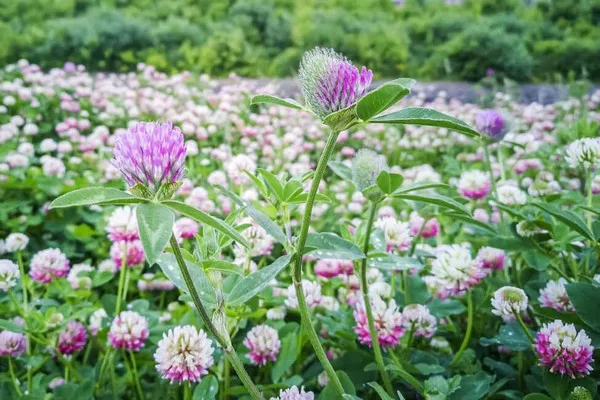Squirrels can be delightful creatures to observe in their natural habitat, but when they invade your garden and wreak havoc on your plants, they quickly become a nuisance. While there are various methods available to deter squirrels, using squirrel repellent flowers is an eco-friendly and natural solution that can help protect your garden while adding beauty and color. In this article, we will explore the concept of squirrel repellent flowers, how they work, and some popular varieties that can keep squirrels at bay.
Understanding Squirrel Repellent Flowers
Squirrel repellent flowers are specific plant species that naturally repel squirrels due to their odor, taste, or other chemical properties. These flowers emit scents or produce substances that squirrels find unappealing, which helps deter them from venturing into your garden. By strategically planting these flowers, you can create a natural barrier that discourages squirrels from causing damage to your plants.
How Do Squirrel Repellent Flowers Work?
Squirrel repellent flowers work through different mechanisms to discourage squirrels from entering your garden. Here are some common ways in which these flowers repel squirrels:
Strong Odors: Certain flowers have strong fragrances that squirrels find unpleasant. For example, plants like daffodils (Narcissus spp.), marigolds (Tagetes spp.), and hyacinths (Hyacinthus spp.) emit smells that deter squirrels.
Bitter Taste: Some plants contain compounds that produce a bitter taste, making them unappetizing to squirrels. Flowers such as geraniums (Pelargonium spp.), salvia (Salvia spp.), and zinnias (Zinnia spp.) fall into this category.
Toxic Substances: Certain plants naturally produce toxins that are harmful to squirrels. Foxgloves (Digitalis spp.) and lily-of-the-valley (Convallaria majalis) are examples of flowers with toxic properties that repel squirrels.
Physical Barriers: Some squirrel repellent flowers have thorny stems or prickly leaves, acting as a physical deterrent for squirrels. Roses (Rosa spp.), hollyhocks (Alcea spp.), and barberry (Berberis spp.) fall into this category.
By incorporating these plants into your garden, you can create an environment that is less inviting to squirrels, reducing the chances of damage to your precious plants.
Popular Squirrel Repellent Flowers
Daffodils (Narcissus spp.): Known for their vibrant yellow blooms, daffodils emit a strong scent that squirrels find repulsive. Planting daffodils strategically around your garden can help deter squirrels effectively.
Marigolds (Tagetes spp.): These colorful annual flowers not only add beauty to your garden but also repel squirrels with their strong aroma. Marigolds are easy to grow and can be planted in pots or borders.
Geraniums (Pelargonium spp.): With their aromatic foliage and colorful flowers, geraniums are excellent squirrel repellents. They contain compounds that produce a bitter taste, deterring squirrels from nibbling on nearby plants.
Foxgloves (Digitalis spp.): Foxgloves are stunning flowering plants that contain toxic substances called cardiac glycosides. While harmful to squirrels, they pose no threat to humans when handled with care.
Salvia (Salvia spp.): Salvia plants feature beautiful flowers in various colors and emit a strong fragrance that squirrels dislike. They are drought-tolerant and can thrive in different soil types.
Zinnias (Zinnia spp.): These vibrant annual flowers produce a bitter taste that squirrels find unpalatable. Zinnias come in a wide range of colors and are easy to grow from seeds.
Roses (Rosa spp.): Apart from their beauty, roses have thorny stems that act as a physical deterrent for squirrels. Planting roses along garden borders or near vulnerable plants can help protect them from squirrel damage.
Tips for Using Squirrel Repellent Flowers Effectively
To maximize the effectiveness of squirrel repellent flowers in your garden, consider the following tips:
Plant strategically: Identify areas where squirrels are most likely to enter your garden or target your plants. Plant squirrel repellent flowers in these areas to create a barrier.
Mix varieties: Plant a combination of different squirrel repellent flowers to provide a more diverse and effective defense against squirrels.
Maintain plant health: Ensure your squirrel repellent flowers are healthy and well-maintained. Stressed or weakened plants may not secrete enough repellent compounds to deter squirrels effectively. Provide proper watering, sunlight, and soil conditions for optimal plant health.
Consider companion planting: Combine squirrel repellent flowers with other companion plants that can enhance the deterrent effect. For example, planting garlic (Allium sativum) or onions (Allium cepa) alongside your squirrel repellent flowers can further discourage squirrels.
Monitor and adjust: Regularly inspect your garden for signs of squirrel activity and adjust your planting strategies accordingly. If you notice certain areas are still vulnerable, consider adding more squirrel repellent flowers in those locations.
Combine with other deterrent methods: While squirrel repellent flowers can be effective, they may not provide foolproof protection. Consider combining their use with other squirrel deterrent techniques such as fencing, netting, or ultrasonic devices to reinforce your garden’s defense against squirrels.
Educate yourself: Research local squirrel behavior and preferences to gain a better understanding of specific plants that squirrels in your area find most repelling. Local gardening resources, horticulture experts, or experienced gardeners in your community can provide valuable insights.
Conclusion
Squirrel repellent flowers offer a natural and eco-friendly way to protect your garden from squirrel damage while adding beauty and color to your outdoor space. By harnessing the power of strong scents, bitter tastes, toxic properties, or physical barriers, these flowers can help create an environment that is less inviting to squirrels. Daffodils, marigolds, geraniums, foxgloves, salvia, zinnias, and roses are among the popular varieties known for their ability to repel squirrels effectively.
By strategically incorporating squirrel repellent flowers into your garden layout, maintaining their health, and considering companion planting and other deterrent methods, you can significantly reduce squirrel-related damage and enjoy a flourishing garden. Embrace the power of nature’s defenses and reclaim your garden from pesky squirrels with the help of these beautiful and functional plants.


